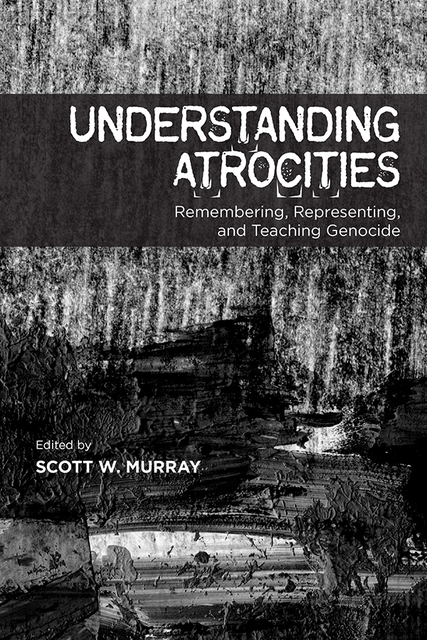Understanding Atrocities
Remembering, Representing, and Teaching Genocide
How do we understand and represent atrocities? What are the challenges we face in teaching and learning about extreme events? This is a multi-focused, multidisciplinary exploration of key questions in contemporary genocide studies.
Understanding Atrocities is a wide-ranging collection of essays bridging scholarly and community-based efforts to understand and respond to the global, transhistorical problem of genocide. The essays in this volume investigate how evolving, contemporary views on mass atrocity frame and complicate the possibilities for the understanding and prevention of genocide.
The contributors ask, among other things, what are the limits of the law, of history, of literature, and of education in understanding and representing genocidal violence? What are the challenges we face in teaching and learning about extreme events such as these, and how does the language we use contribute to or impair what can be taught and learned about genocide? Who gets to decide if it’s genocide and who its victims are? And how does the demonization of perpetrators of atrocity prevent us from confronting the complicity of others, or of ourselves?
Through a multi-focused and multidisciplinary investigation of these questions, Understanding Atrocities demonstrates the vibrancy and breadth of the contemporary state of genocide studies.
Resources
Resource Collections
Download the PDF
Collection
Single Resources
PDF PDF Chapter 10 - Atrocity, Banality and Jouissance in Performance
PDF Chapter 9 - Thinking about Nazi Atrocities Without Thinking About Nazi Atrocities: Limited thinking as Legacy in Schlink's The Reader
PDF Chapter 8 - Helping Children Understand Atrocities: Developing and Implementing an Undergraduate Course Titled War and Genocide in Children's Literature
PDF Chapter 7 - Remembering Them All: Including and Excluding Atrocity Crime Victims
PDF Chapter 6 - "A Tragedy to be Sure": Heteropatriarchy, Historical Amnesia, and Housing Crises in Northern Ontario
PDF Chapter 4 - The Benefits and Challenges of Genocide Education: A Case Study of the Armenian Genocide
PDF Chapter 5 - "We Charge Genocide": A HIstorical Petition All but Forgotten and Unknown
PDF Chapter 3 - Troubling History, Troubling Law: The Question of Indigenous Genocide in Canada
PDF Chapter 2 - Finding Global Justice Locally at Sites of Atrocity: The Case for the Sebrenica-Potočari Memorial Center and Cemetary
Metadata
- isbn978-1-55238-886-0
- publisherUniversity of Calgary Press
- publisher placeCalgary, AB
- rightsThis Open Access work is published under a Creative Commons licence.
- rights holderCC-BY-NC-ND 4.0
- series number1
- series titleArts in Action

